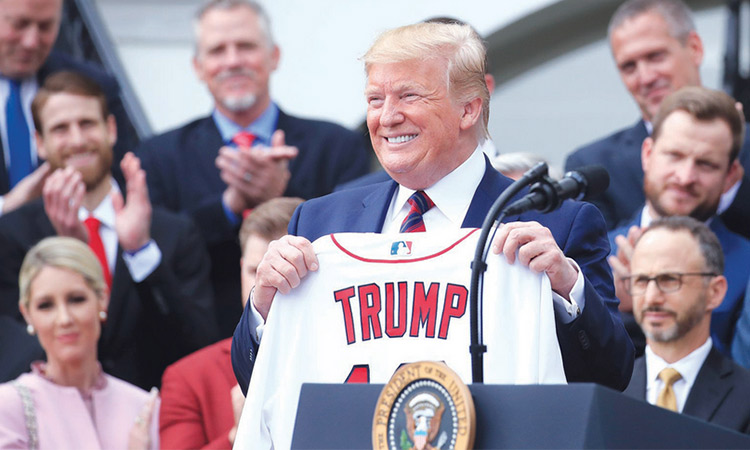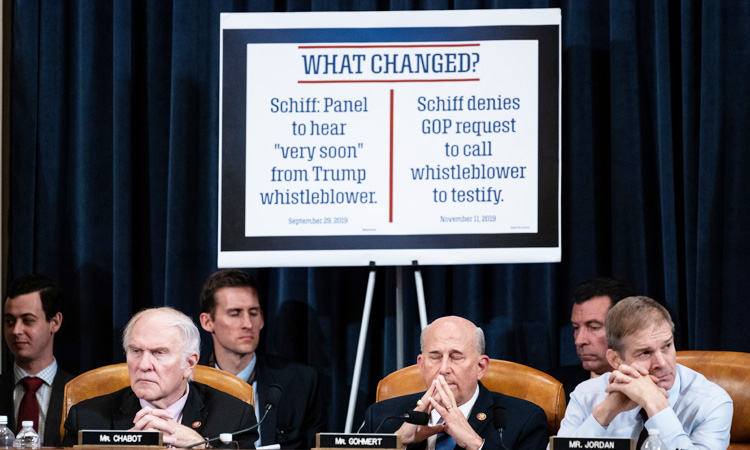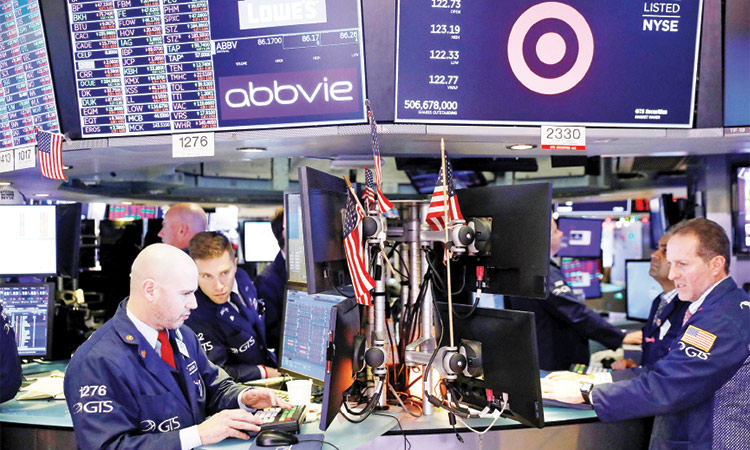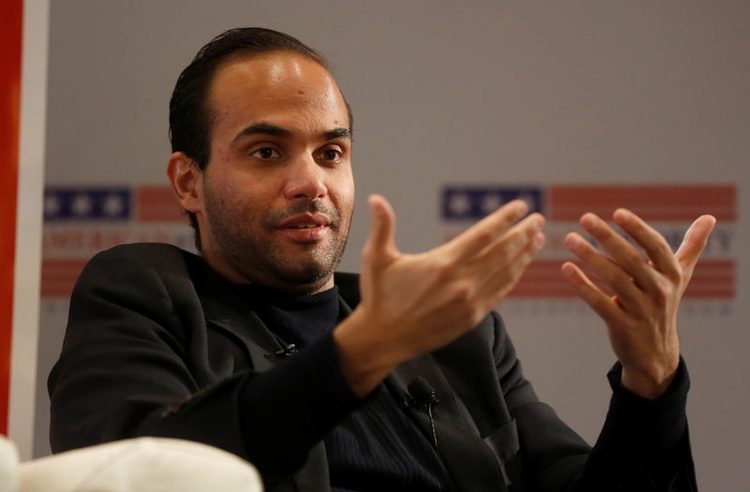Trump says top 2020 rivals are ‘SleepyCreepy’

Donald Trump shows off a Red Sox jersey presented to him during a ceremony welcoming the Boston Red Sox in Washington. Associated Press
The Republican president took to his favorite public platform, Twitter, to announce the stinging new epithet for Biden, who enjoys a strong lead in Democratic polls, and reprise his favorite sobriquet for Sanders, the liberal US senator who for months has been number two in the running.
“Looks to me like it’s going to be SleepyCreepy Joe over Crazy Bernie,” Trump tweeted.
“Everyone else is fading fast!” he added, referring to the crowded field of 21 candidates, including seven US senators, four current and former congressmen and two governors.
Biden and Sanders are ruling the race, although it is still nine months before the first votes are cast in the state-by-state nominations process.
Biden is grappling with his reputation as an especially tactile politician.
He has been criticized recently for invading personal space or otherwise making women feel uncomfortable over the years, but he insisted he never intentionally engaged in inappropriate behavior.
Trump, who has been accused of sexual misconduct at least 20 women since the 1980s and denies any wrongdoing, said two weeks ago he would refrain from directly attacking Biden by using the handle “that rhymes with” sleepy.
“I’ve known him for a while and he’s a pretty sleepy guy,” Trump told Fox News, adding that Biden is “not going to be able to deal with President Xi” Jinping of China, who he described as smart and energetic.
Trump on Friday said he was in no hurry to sign a trade deal with China as Washington imposed a new set of tariffs on Chinese goods and negotiators ended a second day of talks to try to salvage an agreement.
The United States early on Friday increased its tariffs on $200 billion in Chinese goods to 25% from 10%, rattling financial markets already worried the 10-month trade war between the world’s two largest economies could spiral out of control. China is expected to retaliate.
The tariffs went into effect just hours before U.S. Trade Representative Robert Lighthizer, U.S. Treasury Secretary Steven Mnuchin and Chinese Vice Premier Liu He held a second day of talks in Washington. The session broke up after about 90 minutes.
“They were constructive discussions. That’s all I can say,” Mnuchin told reporters as he left Lighthizer’s offices near midday.
In a series of morning tweets, Trump defended the tariff hike and said he was in “absolutely no rush” to finalize a deal, adding that the U.S. economy would gain more from the levies than any agreement.
“Tariffs will bring in FAR MORE wealth to our country than even a phenomenal deal of the traditional kind,” Trump said in one of the tweets.
Despite Trump’s insistence that China will absorb the cost of the tariffs, U.S. businesses will pay them and likely pass them on to consumers. Consumer spending accounts for more than two-thirds of U.S. economic activity.
Global stocks, which have fallen this week on the increased U.S.-China tensions, came under renewed pressure on Friday. Major U.S. stock indexes were down more than 1% and prices of U.S. government debt rose. The U.S. dollar slipped against a basket of currencies.
Trump, who has adopted protectionist policies as part of his “America First” agenda and railed against China for trade practices he labels unfair, said the trade talks, originally due to end on Friday, could drag on beyond this week.
“We will continue to negotiate with China in the hopes that they do not again try to redo deal!” said Trump, who has accused Beijing of reneging on commitments it made during months of negotiations.
Following the U.S. tariff hike, China’s Commerce Ministry said it would take countermeasures but did not elaborate.
China responded to Trump’s tariffs last year with levies on a range of U.S. goods including soybeans and pork, which hurt U.S. farmers at a time when their debt has spiked to its highest level in decades.
U.S. Agriculture Secretary Sonny Perdue said on Friday that Trump had asked him to create a plan to support the farmers. The U.S. Department of Agriculture already has rolled out up to $12 billion to help offset farmers’ China-related losses.
Agencies







